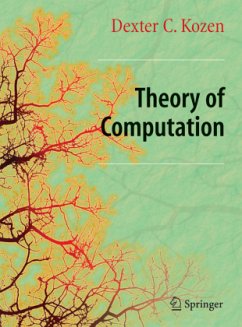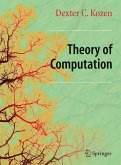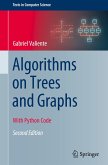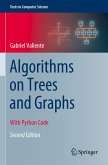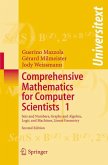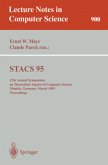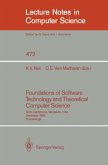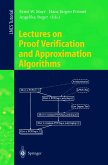In these early years of the 21st Century, researchers in the field of computing are delving ever further into the new possibilities of the science and to the primary tools that form its foundations. The theory behind computation has never been more important.
Theory of Computation is a unique textbook that serves the dual purposes of covering core material in the foundations of computing, as well as providing an introduction to some more advanced contemporary topics. This innovative text focuses primarily, although by no means exclusively, on computational complexity theory: the classification of computational problems in terms of their inherent complexity. It incorporates rigorous treatment of computational models, such as deterministic, nondeterministic, and alternating Turing machines; circuits; probabilistic machines; interactive proof systems; automata on infinite objects; and logical formalisms. Although the complexity universe stops at polynomial space in most treatments, this work also examines higher complexity levels all the way up through primitive and partial recursive functions and the arithmetic and analytic hierarchies.
Topics and features:
- Provides in-depth coverage of both classical and contemporary approaches in one useful, concise volume
- Organized into readily applicable, self-contained primary and secondary lectures
- Contains more than 180 homework exercises of varying difficulty levels, many with hints and solutions
- Includes approximation and inapproximation results, and some lower bounds
- Treats complexity theory and classical recursion theory in a unified framework
Advanced undergraduates and first-year graduates in Computer Science or Mathematics will receive a thorough grounding in the core theory of computation and computational complexity, as well as anintroduction to advanced contemporary topics for further study. Computing professionals and other scientists interested in learning more about these topics will also find this text extremely useful.
Prof. Dexter Kozen teaches at Cornell University, Ithaca, New York, and has comprehensively class-tested this book's content. He authored the highly successful Automata and Computability, which offers an introduction to the basic theoretical models of computability, and The Design and Analysis of Algorithms.
Theory of Computation is a unique textbook that serves the dual purposes of covering core material in the foundations of computing, as well as providing an introduction to some more advanced contemporary topics. This innovative text focuses primarily, although by no means exclusively, on computational complexity theory: the classification of computational problems in terms of their inherent complexity. It incorporates rigorous treatment of computational models, such as deterministic, nondeterministic, and alternating Turing machines; circuits; probabilistic machines; interactive proof systems; automata on infinite objects; and logical formalisms. Although the complexity universe stops at polynomial space in most treatments, this work also examines higher complexity levels all the way up through primitive and partial recursive functions and the arithmetic and analytic hierarchies.
Topics and features:
- Provides in-depth coverage of both classical and contemporary approaches in one useful, concise volume
- Organized into readily applicable, self-contained primary and secondary lectures
- Contains more than 180 homework exercises of varying difficulty levels, many with hints and solutions
- Includes approximation and inapproximation results, and some lower bounds
- Treats complexity theory and classical recursion theory in a unified framework
Advanced undergraduates and first-year graduates in Computer Science or Mathematics will receive a thorough grounding in the core theory of computation and computational complexity, as well as anintroduction to advanced contemporary topics for further study. Computing professionals and other scientists interested in learning more about these topics will also find this text extremely useful.
Prof. Dexter Kozen teaches at Cornell University, Ithaca, New York, and has comprehensively class-tested this book's content. He authored the highly successful Automata and Computability, which offers an introduction to the basic theoretical models of computability, and The Design and Analysis of Algorithms.
From the reviews:
"This book represents the lecture notes of Dexter Kozen for the first-year graduate students in computer science at Cornell University. The book contains 41 primary lectures and 10 supplementary lectures covering more specialized and advanced topics. There are also 12 homework sets and several miscellaneous homework exercises ... many with hints and complete solutions. ... there is a bibliography of 127 titles. The book contains a very useful list of notations and abbreviations and an index." (Daniela Marinescu, Zentralblatt MATH, Vol. 1102 (4), 2007)
"The book is a collection of lecture notes based on a one-semester course for first-year graduate students in computer science at Cornell ... . The course serves a dual purpose: to cover material in the foundations of computing for graduate students in computer science preparing for their Ph.D. qualifying exams, and to provide an introduction to some more advanced topics in the theory of computational complexity for those intending to pursue further study in the area." (Ulrich Tamm, Mathematical Reviews, Issue 2007 f)
"This textbook covers topics essential to the theory of computation. ... In short, this is an interesting and enjoyable book that is strongly recommended to people who appreciate accuracy and concision. It will surely be an important textbook on the theory of computation for years to come. The intended audience is advanced undergraduate and first-year graduate students in computer science. It could also be useful to computer scientists with an interest in the foundation of computing and computational complexity." (G. Ciobanu, Computing Reviews, Vol. 49 (5), May, 2008)
"Kozen does a great job of explaining the material... The book is a continuation of the author's excellent work in the field... The 12 homework sets, along with several miscellaneous problem sets, make this book an excellent pedagogical option for the classroom." (Hector Zenil,ACM Computing Reviews, Vol. 49 (9), September 2008)
"This book represents the lecture notes of Dexter Kozen for the first-year graduate students in computer science at Cornell University. The book contains 41 primary lectures and 10 supplementary lectures covering more specialized and advanced topics. There are also 12 homework sets and several miscellaneous homework exercises ... many with hints and complete solutions. ... there is a bibliography of 127 titles. The book contains a very useful list of notations and abbreviations and an index." (Daniela Marinescu, Zentralblatt MATH, Vol. 1102 (4), 2007)
"The book is a collection of lecture notes based on a one-semester course for first-year graduate students in computer science at Cornell ... . The course serves a dual purpose: to cover material in the foundations of computing for graduate students in computer science preparing for their Ph.D. qualifying exams, and to provide an introduction to some more advanced topics in the theory of computational complexity for those intending to pursue further study in the area." (Ulrich Tamm, Mathematical Reviews, Issue 2007 f)
"This textbook covers topics essential to the theory of computation. ... In short, this is an interesting and enjoyable book that is strongly recommended to people who appreciate accuracy and concision. It will surely be an important textbook on the theory of computation for years to come. The intended audience is advanced undergraduate and first-year graduate students in computer science. It could also be useful to computer scientists with an interest in the foundation of computing and computational complexity." (G. Ciobanu, Computing Reviews, Vol. 49 (5), May, 2008)
"Kozen does a great job of explaining the material... The book is a continuation of the author's excellent work in the field... The 12 homework sets, along with several miscellaneous problem sets, make this book an excellent pedagogical option for the classroom." (Hector Zenil,ACM Computing Reviews, Vol. 49 (9), September 2008)

